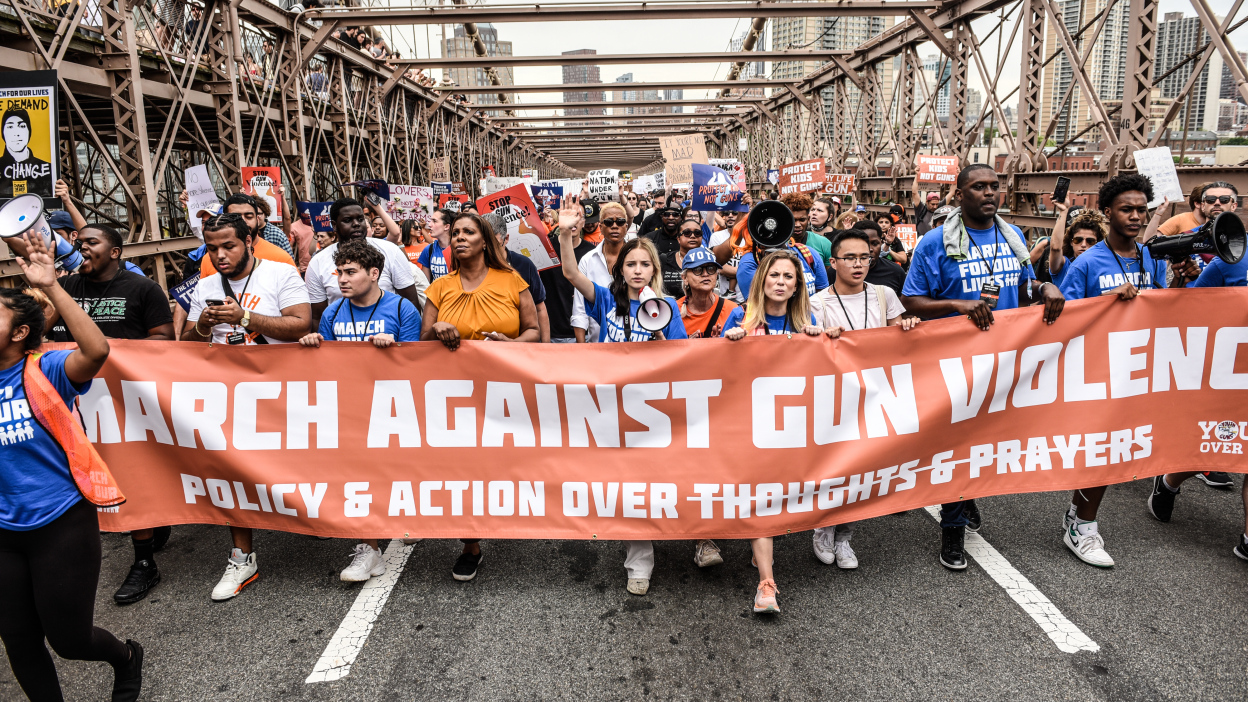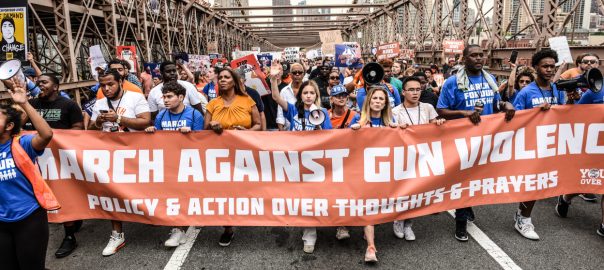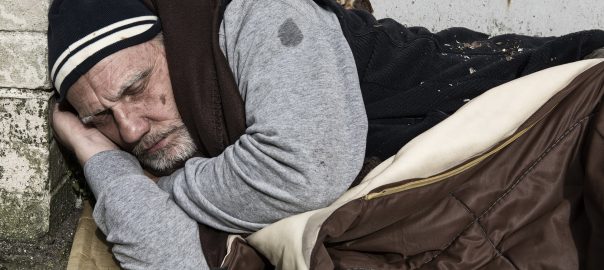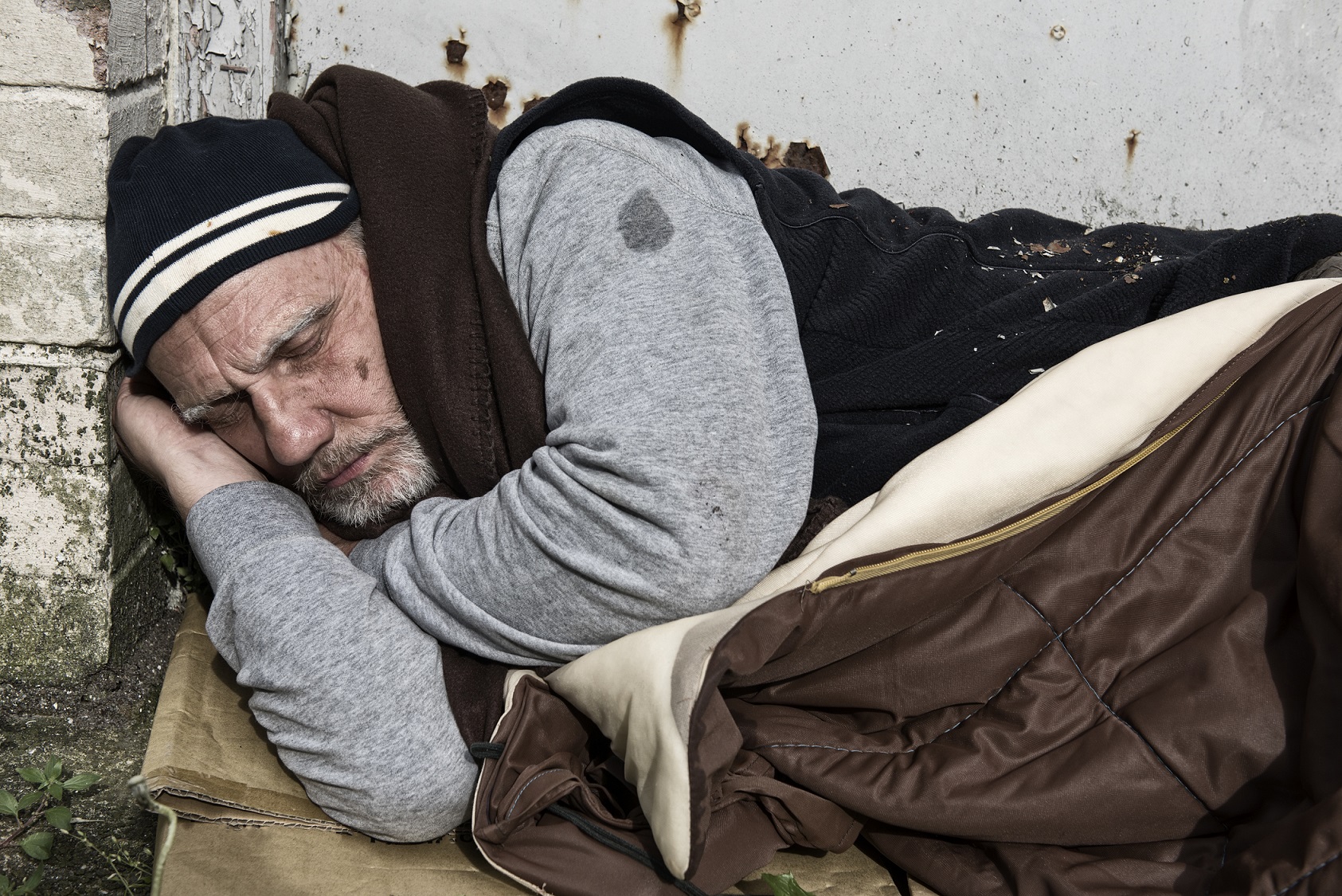A message on the active nature of prayer.
On February 14, 2018, 19-year-old Nikolas Cruz walked into Stoneman Douglas High School in Parkland Florida and opened fire.
Though he had a well-documented history of violent behavior, aggressive language and a psychiatric diagnosis, a year prior Nikolas purchased an AR-15 semi-automatic rifle at a local gun shop. He did so legally, without incident.
It was this AR-15, along with multiple magazines of ammo for it, that he brought into school that day. Within four minutes he had killed 17 students, teachers and staff, wounding another 17. It remains the deadliest high school shooting in our nation’s history.
This mass shooting, personally speaking, hit close to home. Parkland is a 10-minute drive from where I worked in South Florida. I couldn’t help but wonder if the kids of my former coworkers were ok.
Happening on Valentine’s Day, where many celebrate the love two people share, the irony is difficult to miss. This particular February 14 was also Ash Wednesday, a day marked by prayer, fasting, repentance.
While preparing for worship that night I reflected on the news. My clergy colleague and I, sensing a moment, opted to talk openly about it in a Pastor Chat during service. Perhaps, we thought, others needed space to reflect and grieve too.
As we put the sign of the cross on people’s foreheads in ash that night, liturgy took on additional meaning.
Remember that you are dust.
And to dust you shall return.
Given the societal gridlock that surrounds gun violence in our land, a unique problem for us compared to other countries, I’m not always hopeful. Is change even possible?
That night I prayed in earnest for the challenges our country faces. Sometimes they seem insurmountable.
I closed my eyes and went to sleep. Perhaps tomorrow would bring a brighter day.
Parable
Luke 18 finds Jesus teaching the disciples about the nature of prayer. Sensing they needed reassurance about the challenges they would soon face, Christ offers encouragement. Pray always, and do not lose heart, the passage begins.
The parable tells the tale of two characters, a widow and a judge. Widows were marginalized characters in this era, with little agency of their own. Cast aside from the mainstream patriarchal society that surrounded them, widows were likely seen as charity cases. Often in need of –
money,
food,
clothing,
shelter.
As happens today many choose to look away instead of lending a hand. But widows have something going for them. Or rather someone going for them: God.
The teachings of Judaism are crystal clear about treating widows, orphans and strangers with compassion. Treating them with justice. Hebrew scripture is chock full of passages about it. Here’s one from Exodus 22:22-23:
If you’re a widow, and you’ve been wronged, knowing God is on your side is a pretty big win. It’s a good thing to keep in your back pocket. It is your ace in the hole.
Armed with this knowledge the widow goes to the judge. Grant me justice against me opponent she pleads. For she had been wronged.
Unfortunately, this was an unjust judge.
Which is an oxymoron.
Judges should seek justice, always.
It is the nature of what they do.
This judge neither feared God nor respected people.
Initially the unjust judge didn’t help. He’d already checked out of his job. He had no interest in doing it. Much less in doing it well.
It’s worth spending time with the power differential between the two characters. Here we have –
Widowed female vs. man of means.
Unemployed vs. elected official.
Powerless vs. powerful.
Even with this massive imbalance the woman kept pressing. She kept pleading her case to the unjust judge.
She did it –
again, and
again, and
again.
And why not? For she knew God was on her side.
Tiring from being bothered so much the unjust judge relents.
This widow keeps bothering me.
She won’t stop.
She just keeps showing up.
She is wearing me out.
I will grant her justice, the unjust judge reasons. Just so she leaves me alone.
And with that the widow had finally won.
This is how prayer works, Jesus concludes. When faced with injustice keep on crying out, in word and in deed. For if God can use a judge with questionable ethics like this, despite their baggage, anything is possible.
Pivot
Our nation has a significant gun issue, there’s just no way around it. The rate of firearm homicides in the US is almost 10 times higher than the third highest country in the world, Canada.
And yet there are more Christians in America than anywhere else on the globe.
Extremely violent country in one hand.
Lots of Christians in the country in the other.
This, too, is an oxymoron.
Or at least it should be.
Violence is not of God.
It’s not up for debate.
For we serve the Prince of Peace.
What to do?
Parkland
The response to the Parkland shooting began as most do. Politicians, pastors and pundits offered various versions of their thoughts and prayers. If prayer is just this passive thing, where you lift it up and ignore it later we needn’t expect much. Because with gun violence, in recent history, nothing ever seems to change.
But this time?
Something seemed different.
A day after the Parkland shooting student survivors formed a group, Never Again, to advocate for gun control.
Initially no one took them seriously.
They’re just high schoolers after all.
Who would listen to them?
That perception did not last long.
Three days after the shooting the Never Again group held a rally. Hundreds showed up. Three days after that they went to the state capital, begging legislators to do more.
The #neveragain hashtag soon went viral, keeping the gun control conversation going strong. The youth then hit the media, and were active in tv, radio, online.
And then, on March 24, less than six weeks after the shooting, they planned something big: March for Our Lives, a demonstration supporting gun control legislation. The march took place in Washington D.C., with over 880 sibling events throughout the US and the world.
With turnout estimated between 1.2 and 2 million people in the US, it was one of the largest protests in American history.

The students kept speaking out –
again, and
again, and
again.
And why not? As a people of faith serving the Prince of Peace we know something. When it comes to addressing systemic issues of a culture steeped in violence God is on our side.
The students kept rocking the boat.
They would not stop.
They just kept showing up.
They started to wear people out.
That Spring a series of wins for gun control advocates took place.
- President Trump directed the Department of Justice to ban bump stocks.
- The STOP School Violence Act increased funding for security training and metal detectors.
- The Florida Legislature raised the minimum age for buying rifles to 21, implementing waiting periods and background checks prior to purchase.
- Major gun sellers like Dick’s and Walmart raised the age requirement to 21.
And then, on June 25th of this year, President Biden signed the first major gun safety legislation passed by Congress in nearly three decades. Coming days after the Uvalde TX school shooting that killed 19, it gives incentives for states to remove weapons from people deemed a threat.
All that, because a group of high schoolers decided they were done falling victim to a culture that values guns more than human life.
All that because they never gave up.
(There’s still more work to do).
Today
Rabbi Abraham Joshua Heschel, reflecting on his participation in the 1965 civil rights march from Selma to Montgomery said this: I felt my legs were praying.
As this parable illustrates prayer can literally embody action.
Perhaps that is the way it works best.
God always sides with of the oppressed, the marginalized, the people treated as less than. Once you know that keep it in your back pocket. It is your ace in the hole.
It is your permission to sin boldly. It is your mandate to challenge unjust systems. For as small and insignificant as you may feel please know this: you have already won. For God is on your side.
Eventually God’s will be done, on earth as it is in heaven. We need only take part.
Yet to arrive at that we’ve got to treat prayer as more than merely –
closing our eyes,
bowing our heads,
saying some words.
Because standing up for God’s children requires action. And that action is prayer. The Parkland students show us what prayer looks like, in the flesh. For —
Advocating is prayer.
Serving is prayer.
Organizing is prayer.
Funding is prayer.
Marching is prayer.
Picketing is prayer.
Voting is prayer.
Sound daunting? Here Christ reminds: Pray always. Do not lose heart.
Is addressing gun control not your jam? That’s cool. There’s a bevy of social justice issues the tenants of your faith call you to pursue. Be it –
Gender inequality,
Affordable housing,
Racial equity,
Food insecurity,
Homelessness,
LGBTQ+ inclusion,
Care of creation –
Pick your passion and then dive in.
Be the fly in the ointment.
Stare unjust systems down.
No need to blink.
Do it –
again, and
again, and
again.
Keep rocking the boat.
Do not stop.
Keep showing up.
Pray without ceasing.
Eyes wide open.
Until God’s will be done. Amen.


